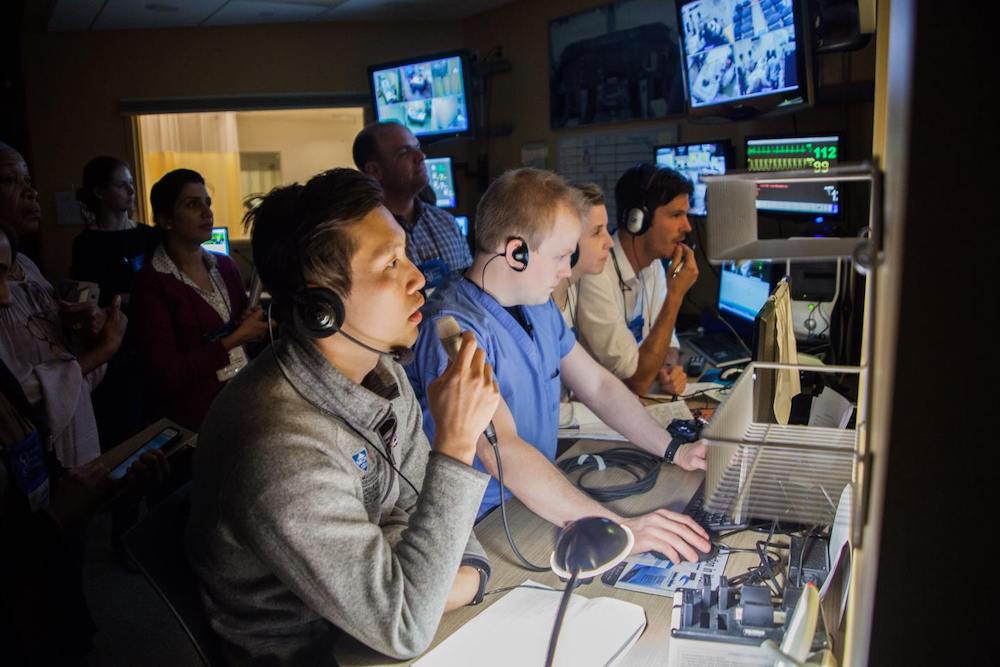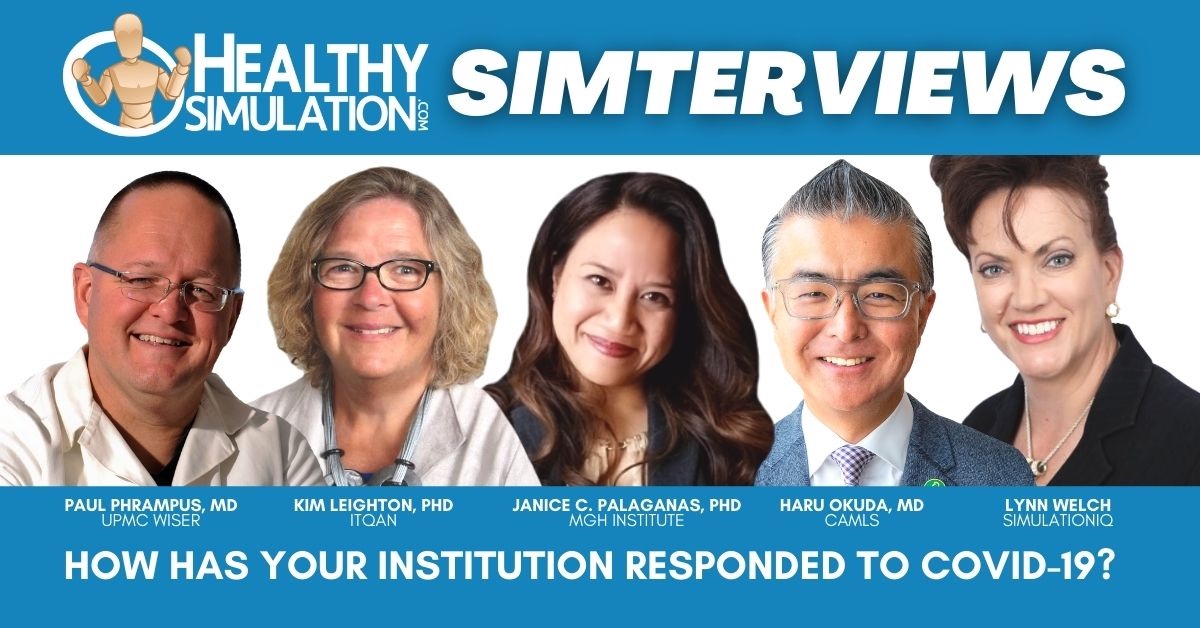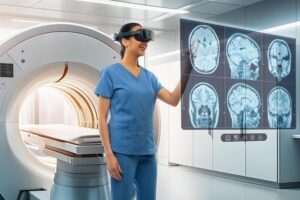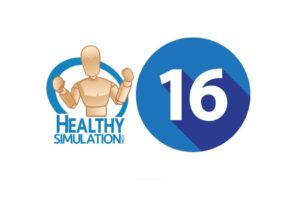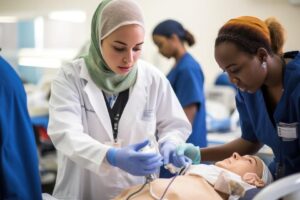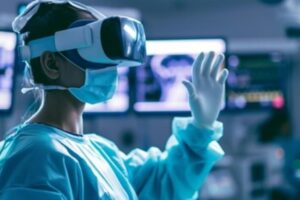Center for Medical Simulation
The Center for Medical Simulation (CMS) is Harvard’s healthcare simulation training facility that focuses on instructing a broad spectrum of learners and providers. Since the center first opened in 1993, CMS has focused on developing teamwork behaviors and communication, collaboration and crisis management skills, all taught through realistic learning scenarios.
Hands-on simulation in healthcare is used to help professionals develop a level of preparedness and insight that cannot be acquired through textbooks or lecture-based learning alone. In addition to this methodology, the Center for Medical Simulation’s vision includes establishing “experiential healthcare learning that never puts a patient at risk.” One of the world’s first clinical simulation centers, the mission of CMS is to ultimately use simulation to improve safety, quality and education in healthcare.
With high-realism patient care scenarios that closely simulate real-life crises, the Center for Medical Simulation is able to work to combat challenges associated with inexperience. The training center hopes to use the power of healthcare simulation to fundamentally change the way the industry addresses preparedness. CMS is an endorsed center by the American Society of Anesthesiologists (ASA).
Sponsored Content:
A typical day at CMS is filled with experiences in simulated clinical situations, punctuated with debriefings supported by videotaped scenarios. These debriefings with skilled instructors are the core of the learning experience, and encourage an open and motivational discussion of performance and error. They also instill the principles of teamwork in participants’ approaches to healthcare. CMS’ learning model is based on the widely-accepted Crisis Resource Management (CRM) principles.
History of the Center for Medical Simulation
A year after the establishment of the Center for Medical Simulation, the facility used the first commercially produced, full-featured mannequin simulator to help train clinicians in teamwork and crisis management in 1994. In subsequent years, the facility has grown and developed to operate courses designed for clinicians, medical educators, administrators and managers.
Within these courses, a number of innovating and challenging activities involving healthcare simulation have become offered. In more than two decades of experience in medical simulation, CMS has trained thousands of participants. The Center for Medical Simulation has helped manufacturers to conduct human factors trials of their technologies and continue to initiate an array of healthcare simulation activities as well.
Sponsored Content:
Along with innovative programs, trials and a full-environment facility, the center has worked to differentiate itself by exhibiting exceptionally high-quality and acquiring an expert staff. This staff is comprised of an elite team of more than 25 professional faculty members with expertise in medicine, patient safety, biomedical engineering, organizational behavior and adult learning help ensure that each simulation session is customized and uniquely effective.
The combined healthcare simulation experience and expertise of the CMS team allows the training facility to deliver competent, comprehensive healthcare simulation, with techniques drawn from multiple disciplines. The courses can be further customized to the level and background of each group.
<iframe width=”560″ height=”315″ src=”https://www.youtube.com/embed/kp0qIMjzoEY” frameborder=”0″ allow=”accelerometer; autoplay; encrypted-media; gyroscope; picture-in-picture” allowfullscreen></iframe>
Another element of the facility’s history, CMS formed The Institute for Medical Simulation (IMS) in partnership with the Harvard-MIT Division of Health Sciences and Technology in 2004. As a part of CMS, and funded by a grant from the Josiah Macy Jr. Foundation, IMS offers courses for simulation leaders, educators and researchers who seek to develop and maintain high-quality healthcare simulation programs within their organizations.
To date, the Center for Medical Simulation has operated over two thousand courses and trained thousands of participants using numerous innovative and challenging scenarios. Many of learners who have taken part in CMS programs and courses have gone on to greatly influence the healthcare industry.
Resources Available From CMS
The CMS team provides consulting, training, podcasts, courses, research publications, and long-distance affiliation opportunities. According to the center, many participants find their CMS training to be the single most valuable and meaningful learning experience of their careers. Most find the confidential environment to be more comfortable and accessible than simulation at their home institutions. Up to 97% of participants expect their experience at the CMS will help them perform better the next time they respond to a critical event.
There are a number of features that help make the Center for Medical Simulation especially useful to healthcare trainees. One feature is the world class training experience made possible by a breadth of course offerings. The courses and workshops address both the clinical and behavioral aspects of performance from undergraduates to practicing clinicians with particular emphasis on interprofessional simulation-based education.
All CMS courses address both the clinical and behavioral aspects of performance, focusing on crisis management and error prevention. Course topics include leadership, teamwork, effective communication, resource management and performance enhancement. Active learning in CMS’ real-world settings enhances participants’ retention and ability to apply target skills and behaviors.
Another useful feature is the canter’s transformational nature. This is because most of the simulation instructor workshops are intensive immersions in healthcare simulation, and are led by experienced simulation leaders. Using a mixture of flipped classroom, didactics, experiential learning, just-in-time lecturettes and small group work, participants are fully engaged and often find themselves challenging their own assumptions as the activities push them to the edge of their expertise.
Specifically for leadership and management teams (non-clinicians or mixed groups), workshops provide an invaluable opportunity for non-clinicians to receive hands-on experience as a member of a high-performance team on the front lines of healthcare delivery. Workshops include:
- Consultation between the team leader and a CMS facilitator prior to the workshop
- Team pre-briefing on simulation objectives and strategies
- Customized team challenge in the simulated clinical environment
- Debriefing and discussion to identify important interactions and to develop actionable strategies for implementation
- Facilitated work session to apply new strategies to an existing project (i.e., budget negotiations, product development and pipeline strategy)
- Report from CMS facilitator
- Follow-up between the CMS facilitator and the team leader
Further assisting learners in the healthcare simulation space, courses and workshops build camaraderie and support within the CMS community of practice. Through networking, many participants develop lifelong relationships with members of their workshop. They are able to bond over a shared immersion experience and stay in touch long after their workshop ends. CMS fosters these relationships and assists alumni in making connections to nurture the community by hosting an annual reunion of sorts at the International Meeting on Simulation in Healthcare (IMSH).
Harvard Simulation Center Latest News
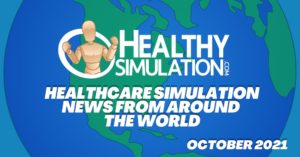
Latest Clinical Simulation News From Around the World | October 2021
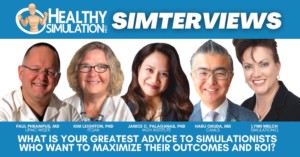
Simterviews: Medical Simulation Experts Discuss Ways to Maximize ROI

Evaluating Healthcare Simulation: Helpful Resources for Clinical Educators
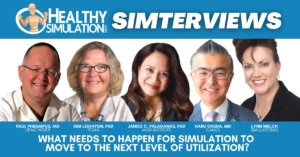
Simterviews: Medical Simulation Experts Discuss Next Level of Healthcare Simulation Utilization

Listen Up: Medical Simulation Podcasts Are Moving Healthcare Education Forward

15 Must Know Healthcare Simulation Terms For 2020
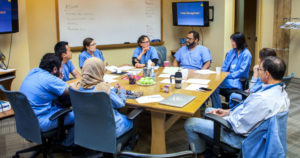
Downloadable DASH Debriefing Tools From Center for Medical Simulation
For more information Visit the Center for Medical Simulation Website!
Sponsored Content:



